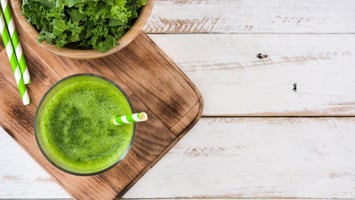Introduction: What is Lemongrass Essential Oil and how is it extracted? Let's dive into the world...
Alcohol Ages More Than Just our Skin
Did you know that alcohol ages more than just our skin? Rebecca Fischer of Ask Behavioral Health shares some fascinating information on the surprising ways alcohol can affect our overall health and appearance.
Raise a glass, but not too often. While an occasional drink might not do much harm, the saying "alcohol ages more than just our skin" holds more truth than we may like to admit.
It's easy to link the dehydrating effects of drinking to dry, dull skin. But do we ever stop to consider what happens beneath the surface? The impact reaches far beyond our reflection in the mirror; it affects our biological age.
What Is Biological Aging?
Biological aging isn't just about the number of candles on your birthday cake. It refers to the gradual and progressive changes in body systems that come with time, eventually leading to decreased functional abilities and increased vulnerability to diseases.
Many factors influence this process, including genetics, environment, and, yes, lifestyle choices such as alcohol consumption.
Raising awareness about how drinking adult beverages influences biological aging is critical. It's not about spoiling your fun, but rather ensuring you're informed about what happens when fun becomes a harmful habit.
Here, we'll delve into various aspects of aging linked to drinking and discuss strategies for mitigating these effects.
The Link to Accelerated Biological Aging
When we talk about how it affects the way our body naturally ages, we often see these changes first in our skin. While having an occasional drink might not immediately impact your skin health, excessive and regular drinking can take a toll on your complexion.
Moderate consumption is when you have a drink or two in social situations or to relax after a long day. In these cases, the effects on your skin may be subtle and not significant. Heavy drinking, on the other hand, is a different story. Drinking large amounts on a regular basis can speed up the aging process of your skin, causing visible signs of aging to appear earlier than expected.
Another way it affects your skin is through dehydration and collagen breakdown. Collagen is like a natural anti-aging serum for your skin. It helps keep it firm, plump, and free from wrinkles. However, it interferes with the production of collagen, leading to more fine lines and sagging skin.
You may have experienced waking up after a night of drinking feeling extremely thirsty. That's because alcohol is a diuretic—it makes you urinate more frequently and depletes your body's moisture. When your body lacks hydration, your skin also loses moisture, making it look dry and dull.
Other Mechanisms Linking Alcohol to Accelerated Aging
Alcohol not only accelerates skin aging but also impacts biological aging, and this happens in several ways.
DNA Damage
Alcohol can induce DNA damage by interfering with DNA repair mechanisms, leading to an accumulation of mutations and cellular damage. This is a crucial factor in speeding up the aging process, as maintaining DNA integrity is vital for cell function and longevity.
Chronic Inflammation
One of the less recognized effects is the ability to trigger inflammation. Chronic inflammation is a key player in driving age-related diseases such as arthritis, heart disease, cancer, and Alzheimer's. When alcohol-induced inflammation comes into play, these processes are exacerbated, thereby promoting premature aging.
Oxidative Stress
The metabolism of alcohol produces harmful by-products that contribute to oxidative stress. This condition occurs when there's an imbalance between free radicals (damaging molecules) and antioxidants in your body. Oxidative stress can cause significant cellular damage, another notable factor in accelerated aging.
Nutritional Deficiencies
Chronic drinking often paves the way for nutritional deficiencies. It interferes with the absorption of essential vitamins like vitamin A, C, D, E, K and B complex, which play crucial roles in maintaining health and slowing down aging processes. Over time, deficiencies in these vitamins can lead to numerous health issues and speed up the aging process.
Telomere Shortening
Telomeres are protective caps at the end of our chromosomes that shorten as we age. Interestingly, excessive drinking has been linked to accelerated telomere shortening, a clear biological marker of aging. Several genetic studies back up this association between high intake and shortened telomere length.
With all these points considered, it's clear that moderate-to-heavy drinking goes beyond skin deep when it comes to aging, delving right into our cells' core and accelerating the biological clock.
Impact of Alcohol on Bone Health
Drinking adult beverages doesn't just affect your skin or your liver—it goes even deeper, right down to your bones. Bone health, a crucial aspect in the aging process, can be significantly impacted by heavy drinking.
Human bones are living tissues, constantly breaking down and rebuilding. It's a delicate balance that can be easily disrupted by alcohol. When we consume too much, we tip the scales in favor of bone breakdown over growth. (Luckily, proper exercise and nutrition can support bone growth.)
Heavy drinking has been directly linked to decreased bone mass density. This reduction in bone strength makes bones more susceptible to fractures and breaks.
The lowered bone mass also increases an individual's risk of developing osteoporosis.
Osteoporosis is a disease often associated with aging, as our bodies naturally lose bone mass as we grow older. But in heavy drinkers, this process is accelerated, leading to premature onset of osteoporosis.
So next time you reach for that extra glass of wine or beer, remember: Drinking ages not only your skin, but your bones too.
Treating Alcohol Abuse and Premature Aging Effects
Behavioral therapies are tailored to help individuals change their drinking behavior through strategies like individual counseling and group therapy.
Pharmacological interventions involve the use of medications to reduce cravings, manage withdrawal symptoms, and prevent relapse.
Comprehensive care for holistic recovery goes beyond treating the addiction alone. It includes regular medical check-ups, nutritional counseling, and emotional support through therapy or support groups.
Strategies for healthy aging during addiction recovery include adopting a nutrient-rich diet, staying hydrated, and practicing good skincare habits. By taking these steps, individuals can work towards reversing the effects of premature aging and enjoy a more vibrant, healthier future.
Reconsidering Our Alcohol Use
Alcohol ages the body faster than natural processes allow. This statement underlines the gravity of its impact on our biological aging process. The visible signs alone, like dry, dull skin and wrinkles, should serve as a stark reminder of this truth. But beneath the skin, alcohol is wreaking far more havoc, weakening our organs, shrinking brain cells, damaging DNA in telomeres, and increasing susceptibility to various age-related diseases. If you need help with stopping drinking, talk to your doctor today.





